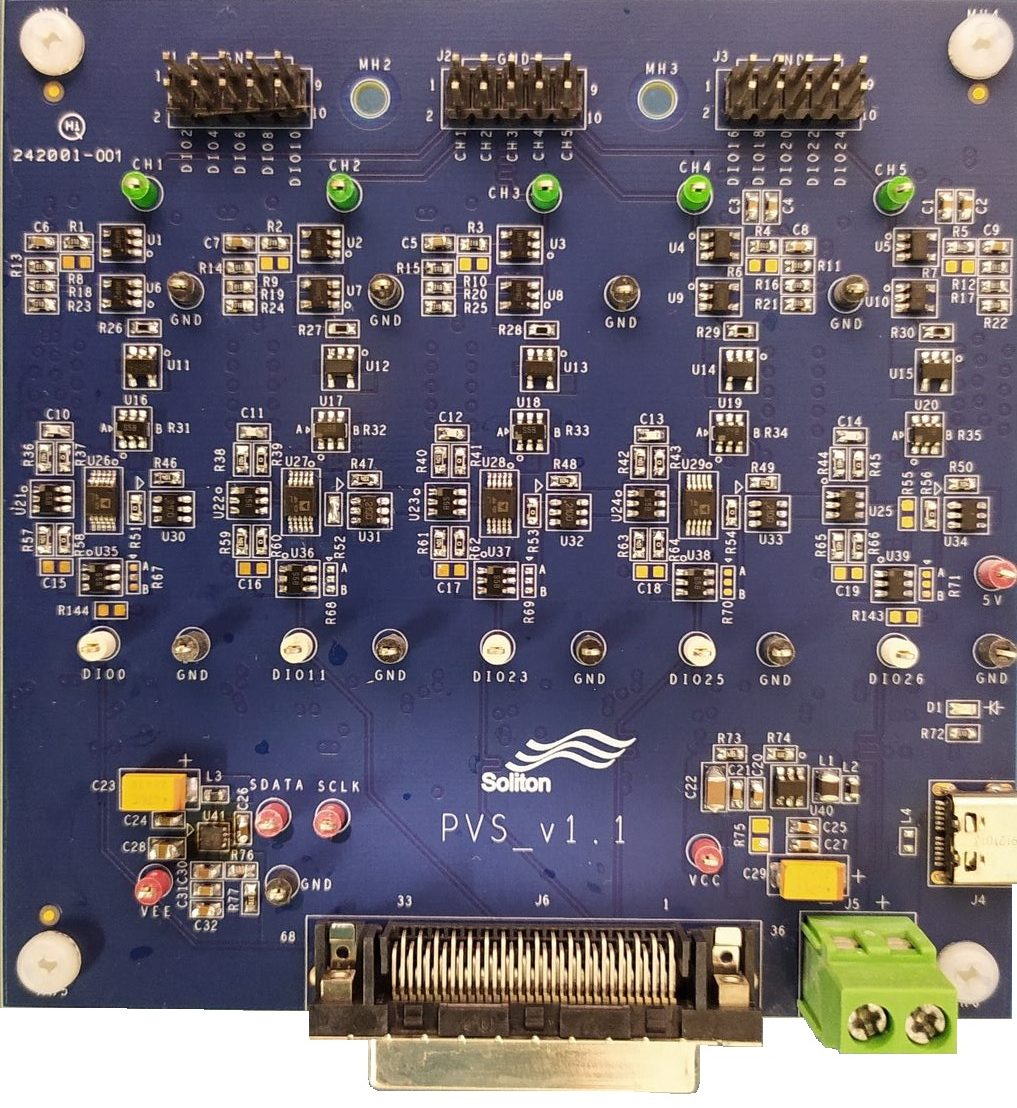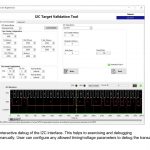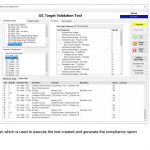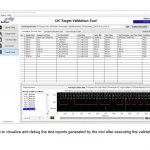DATA SHEET
 Download Datasheet - I2C Protocol Validation Suite Specifications
Download Datasheet - I2C Protocol Validation Suite Specifications
Download Datasheet - I2C Protocol Validation Suite Specifications
Please enter your details, you will receive an immediate automated email with our I2C Protocol Validation Suite Datasheet.
Product Details
- Overview
- Functional Coverage
- Parametric Coverage
- Features
- FAQ
Overview
I2C (Inter-Integrated Circuit) is an asynchronous, 2-wire serial communication protocol. I2C Protocol is well suited for data transfer between ICs at relatively low speed. Its simple 2-wire interface simplifies IC design with fewer pins and smaller packages thus reducing the board space and cost. As a part of product validation, it’s important to validate the product’s conformance against the protocol specification to ensure the interoperability of the product.
As the complexity of the protocol and product increases, the validation time of the protocol interfaces also increases which in turn reduces the RTM. Performing the protocol conformance testing in the traditional way needs a lot of time and effort.
Soliton’s I2C Validation Suite is an off the shelf validation tool using NI’s PXI platform, which helps to validate the devices’ compliance with the timing and electrical specifications of the NXP I2C protocol. The tool can also validate the device’s tolerance to and recovery from a variety of I2C faults & exceptions and provides a comprehensive set of reports. Users have claimed that using this automated solution for I2C Validation has brought down the test time/ validation time from few days to few hours.
Functional Coverage
SPEED MODES
- Standard mode
- Fast mode
- Fast Plus mode
- Highspeed mode (1.7MHz)
- Highspeed mode (3.4MHz)
I2C PROTOCOL FEATURES
- START Condition
- STOP Condition
- Acknowledge
- General Call Address
- Software Reset
- Device ID
- Open Drain (Test Different Pull-Ups)
DEVICE MODES
- Target (Slave)
- Controller (Master)
I2C FUNCTIONAL TESTS
- Register Write
- Register Read
- Write N Bytes
- Write N Bytes
- Write N – Read N Bytes (Combined Format)
I2C FAULT TESTS
- Send additional clock bit
- Skip clock bit
- Skip START / STOP/ RP-START/ BYTE/ACK
- Send NACK
- Send ACK for last Read Byte
- Send invalid Register Address / Data Byte
Parametric Coverage
I2C Legacy Timing Parameters
- fSCL SCL Clock Frequency
- tSU;STA (Setup Time for a Repeated Start Condition)
- tHD;STA (Hold Time (repeated) Start Condition)
- tLOW (Low Period of the SCL Clock)
- tHIGH (High Period of the SCL Clock)
- tSU;DAT (Data Setup Time)
- tHD;DAT (Data Hold Time)
- trCL (Rise Time of SCL Signal)
- tfCL (Fall Time of SCL signal)
- trDA (RiseTime of SDA Signal)
- tfDA (Fall Time of SDA Signal)
- tSU;STO (Setup time for STOP Condition)
- tBUF (Bus Free Time between a Stop and Start Condition)
- tSP (Pulsewidth of spikes to be filtered)
- tVD;DAT (Data Valid Time)
- tVD:ACK (Data Valid Acknowledgement Time)
- trCL1 (Rise Time of SCL signal after Repeated Start/ACK)
Electrical IO Validation
- VIL (Low level input voltage)
- VIH (High level input voltage)
- Vhys (Hysteresis of Schmitt Trigger inputs)
- VOL (Low level output voltage)
Features
Features of I2C Protocol Validation
- ISO 9001 Certified Product
- Simple, Flexible, Modular, and Light Bench Setup
- Easy to use I2C Protocol Exerciser and Debugger to perform various I2C transactions with controllable timings/voltage levels
- Protocol compliance testing with zero coding
- Comprehensive reporting feature to report the test pass/fail reports
- Generates Full Compliance reports in less than 2 hours
- Reproduce failure cases in a few clicks
- Easy to build and test custom device-specific tests
- Automation Capability (DLLs/APIs) from external programming environment/automation frameworks like LabVIEW, C#, Python, TestStand, etc
- Leverage Soliton’s experience in protocol validation and debugging
FAQ
What kind of engagement models are offered for I2C Validation
We offer 2 engagement models. In the First mode, the user can purchase a license of the I2C Validation Suite and do the validation in-house. In the second mode, the user can send us 3 DUT's, we will do the I2C validation and send the test reports in 3 working days
How is this product different from existing Protocol Exercisers, Debugger or Analyzers?
This product is mainly used for performing functional and electrical compliance validation of the I2C devices (post-silicon validation) whereas the other existing protocol exercisers, debuggers, or analyzers are used for performing basic functional tests during the device bring up
Can't I build a home-grown solution instead?
While this is certainly an option, we expect that it will take a highly experienced automation engineer between 3-6 months to create the first version of a similar tool. To create a robust and flexible tool takes experience, and we have been improving this tool over the last 3 years since its release. We believe it is worth the cost to skip the learning curve and avail of our comprehensive report or validation suite.
What else can I do with NI's PXI chassis/modules?
The PXIe-657x module is a general-purpose programmable pattern generator and acquisition device with deep memory. It can be used for other protocol validation tools from us. Also, it can be programmed using LabVIEW or other programming languages to emulate any synchronous digital protocol. NI’s PXI chassis supports high bandwidth and synchronization-friendly control and reads back from a huge variety of digital, analog, and special-purpose modules in a compact form factor.
What is the interposer board referenced in the system diagram?
The Protocol Validation Suite requires custom external circuitry for signal conditioning. Each purchase comes with a complimentary interposer board, which is a separate PCB designed and delivered by us.
Which oscilloscope models are supported?
The Protocol Validation Suite supports any NI scope by default. The tool has a flexible architecture that allows the support of other oscilloscope models. We can help you in building the oscilloscope plugin for one of your oscilloscopes
What type of documentation and training will be available for each solution?
User manuals, Getting started guides, and tutorial videos are available for each solution and can be easily accessed from within the product. Additionally, we will provide short live training sessions upon request.
Can the tool be used for out-of-the-box validation?
Yes, The tool comes with out of box test scripts which can be used for validation after entering the device-specific details
Why was I2C Master- I2C Slave terms are renamed to I2C Controller I2C-Target?
As a part of terminology replacement efforts within MIPI Alliance, MIPI Alliance has deprecated the Master-Slave terminologies and replaced them with Controller-Target terminologies in MIPI I3C® specifications. Based on this NXP has changed the terminologies in the I2C specifications.
Technical Documentation
Soliton’s I2C Validation Suite is an off-the-shelf validation tool using NI’s PXI platform, which helps to validate the devices’ compliance with the timing and electrical specifications of the NXP I2C protocol. It contains the below components.
- NI PXIe 657x – Digital Pattern Generation Card with the PXIe Chassis setup
- Soliton PVS Interposer Board
- Oscilloscope – For performing voltage measurements
- Soliton I2C Validation Suite Software compatible with Windows OS (Win 10)
For more details, download the datasheet
 Download I2C Protocol Validation Suite - Specifications
Download I2C Protocol Validation Suite - Specifications
Download Datasheet - I2C Protocol Validation Suite Specifications
Please enter your details, you will receive an immediate automated email with our I2C Protocol Validation Suite Datasheet.
Hardware
Soliton’s I2C Validation suite is based on the NI – PXI Platform and the below NI part configuration lists the hardware required to perform the validation.
The solution also needs a custom Interposer Board for signal conditioning purposes.

Support & Training
For any queries, contact us at [email protected]. We will respond within 1 Business day.
TYPICAL USER BASE FOR I2C VALIDATION SUITE
- Design Engineers, Test Engineers, Post Silicon Validation Engineers, Engineering Managers, Validation Managers, Lab Managers, etc. from the Semiconductor Industry
- Post Silicon validation of Chips with I2C interface
- Semiconductor Chip Manufacturers making I2C Devices
- Companies making QSFP+ Pluggable Optical Transceivers used in optical fiber technology. These companies need to adhere to and test against the SFF-8679 specification which includes specs for the 2-wire I2C Interface. Hashtags: QSFP Protocol Validation, SFP Protocol Validation, QSFP Testing, SFP Testing, SFF Compliance, SFF-8679 Compliance.
- Companies making display devices that need to comply with and test against the I2C Bus specifications listed in DDC, DDC2B, DDC2Ab, DDC2B+, DDC2Bi, E-DDC standards. Hashtags: DDC Compliance, DDC2B Compliance, DDC2Ab Compliance, DDC2B+ Compliance, E-DDC Compliance, EDID Compliance, EDID physical layer validation
- SMPS Unit Manufacturers who need to test against PMBus, an evolution of the I2C Specification
- Memory, NVMe SSD Manufactures to test against SMBus Specifications
- 2-wire interface on ATCA Compliant controllers and devices
- 2- wire CCI interface between the camera sensor and mobile baseband processor
- Semiconductor Chip Manufactures make devices with a Two-wire interface
OTHER PROTOCOL VALIDATION SERVICES OFFERED BY SOLITON
SPI Protocol Validation ![]() I3C Protocol Validation
I3C Protocol Validation ![]() SPMI Protocol Validation
SPMI Protocol Validation ![]() RFFE Protocol Validation
RFFE Protocol Validation ![]()
UART Protocol Validation ![]() SMBus Protocol Validation
SMBus Protocol Validation ![]() PMBus Protocol Validation
PMBus Protocol Validation ![]()
Demo Request Form
Please fill in the following form and we shall get in touch with you soon to set up a demo of the requested service/product. Thank you!
Error: Contact form not found.
DOWNLOAD NOW
Fill in this form and submit for your download to start automatically
Error: Contact form not found.
Download PRIM Brochure
Submit this form and the PRIM Brochure document will be sent to your email.
Error: Contact form not found.






